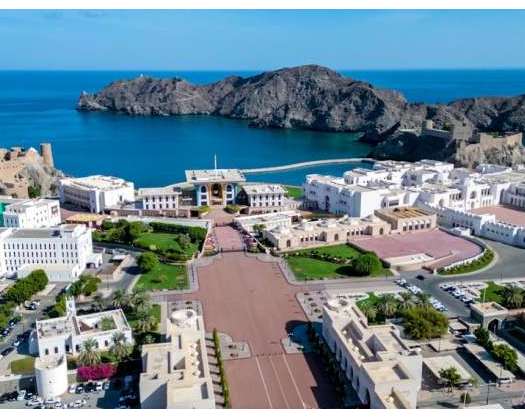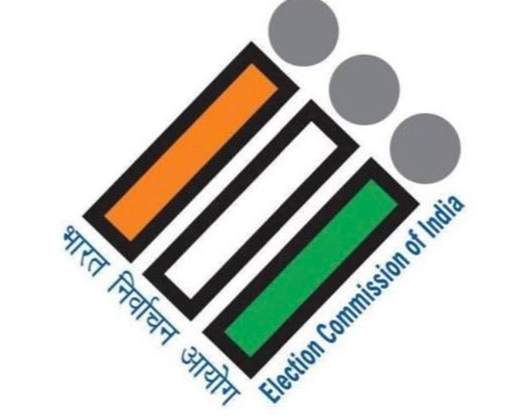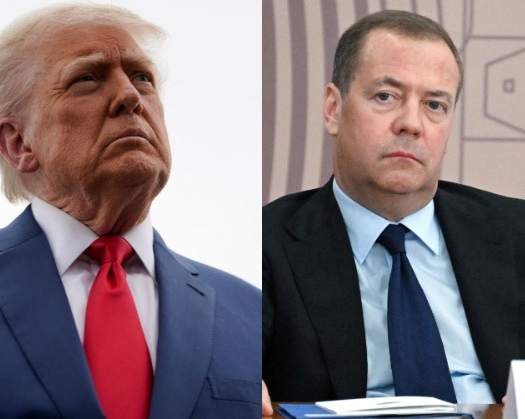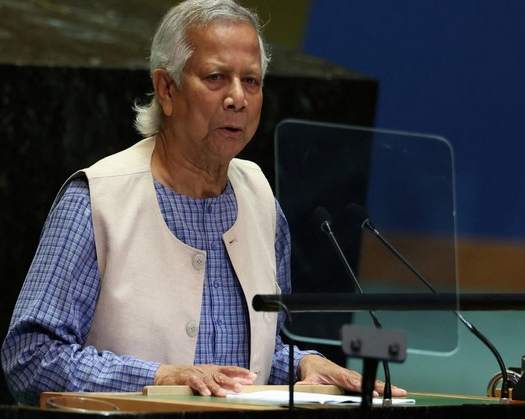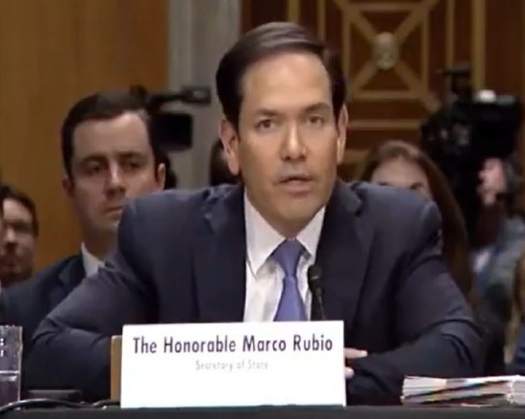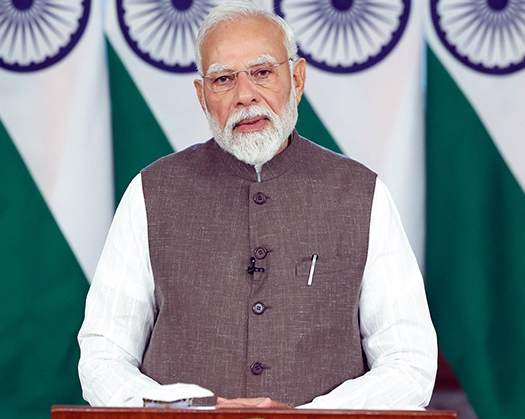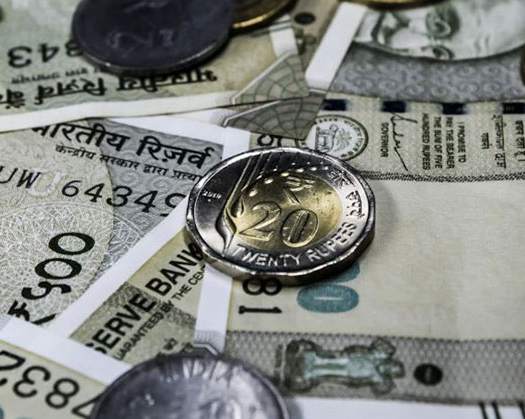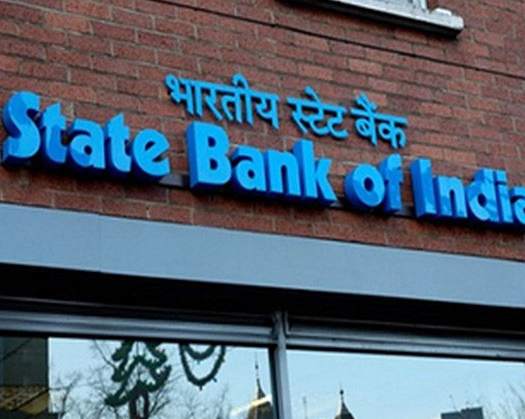Muscat, November 16 --- The Sultanate of Oman is set to commemorate its 54th illustrious National Day tomorrow (Monday), celebrating significant milestones in various sectors of development.
The citizens of Oman, along with numerous state institutions, have played a crucial role in the nation's ongoing progress towards comprehensive development during the recent renaissance under His Majesty Sultan Haitham bin Tarik. His visionary leadership has paved the way for advancements and prosperity across all sectors.
Directives from His Majesty to all state institutions to enhance their missions and create conducive environments for performance improvement have had a positive impact over the past five years, leading to the achievement of several targets outlined in Oman Vision 2040.
The Omani government has successfully improved the country's economic and financial health, reducing debt and boosting the gross domestic product. As of August 2024, the state's public revenue has increased by RO 183 million from the previous year, reaching RO 8.106 billion, marking a significant improvement.
The government has also managed to enhance the state's fiscal performance, reducing the public debt to RO 14.4 billion by June 2024, a decline from RO 20.8 billion in 2021, and achieving a budget surplus for two consecutive years, with surpluses of 2.7 percent in 2022 and 2.2 percent in 2023.
This has been reflected in the credit rating of the Sultanate of Oman, with Standard & Poor's upgrading its second credit rating to "BBB-" from "BB+," maintaining a stable outlook, and Moody's upgrading its outlook from stable to positive, reaffirming the credit rating at "Ba1."
These upgrades underscore the Sultanate of Oman's status as a secure investment destination, having returned to this rating category after a seven-year decline since 2017, attributed to the challenges posed by the global oil price slump and the COVID-19 pandemic.
Furthermore, the Sultanate of Oman has seen notable progress in international rankings, climbing 39 places in the 2024 Index of Economic Freedom to secure the 56th position globally, up from 95th in 2023, and advancing 27 places in the Entrepreneurship Index from 2022 to 2023. Additionally, it has improved its ranking in the Environmental Performance Index, moving up to the 50th position globally from 149th in 2022.
In the realm of education, Sultan Qaboos University (SQU) has made significant strides, securing the 362nd position in the prestigious 2025 World University Rankings, a remarkable advancement of 92 places from its previous standing.
The Sultanate of Oman has also seen notable progress, advancing ten places in the Global Innovation Index, a report issued by the World Intellectual Property Organization (WIPO). This achievement places Oman at the 69th position globally, among 132 countries included in the index. Notably, Oman has demonstrated exceptional performance across three key areas: human capital, research, and infrastructure, securing the top spot in these categories. Furthermore, Oman has seen an increase in its ranking in innovation outputs, ranking among the top twenty countries globally in five specific sub-indicators. These include achieving second place globally in the percentage of government spending allocated per student, ranking 16th globally in the availability of information and communication technologies, and 19th globally in the ease of doing business. Additionally, Oman has experienced a significant leap of 93 places in the growth rate of labor productivity compared to its position in the 2022 index.
In terms of economic development, the Sultanate of Oman has seen a notable increase in foreign direct investments (FDI) throughout the fourth quarter of 2023, reaching a total of RO 25.05 billion, marking a 21.6 percent increase from the same period in the previous year, which saw an inflow of RO 20.59 billion.
Concerning government investments, the Oman Investment Authority (OIA) is diligently working to position the Sultanate of Oman as an attractive investment destination, aiming for sustainable economic growth. The Authority has seen its assets grow to RO 19.2 billion, an increase from approximately RO 17.9 billion at the end of 2022. This growth has been instrumental in generating profits exceeding RO 1.7 billion, contributing over RO 800 million to the state’s general budget, and repaying RO 300 million of loans from its subsidiaries earlier than anticipated in 2023.
The OIA has invested in 13 global funds, including the Platinum Investment Fund and the Global Infrastructure Fund, in addition to direct investments in international companies such as the American "Our Next Energy" Company and the Australian "Hysata."
A pivotal strategic project that was inaugurated at the start of the year 2024 is the DuqmRefinery and Petrochemical Industries Project within the Special Economic Zone at Duqm (SEZAD).
This project represents the largest joint investment endeavor between the Sultanate of Oman and the State of Kuwait, a collaboration between the Omani OQ Group and the Kuwait Petroleum International Company, with a capital value exceeding RO 3.5 billion.
The Sultanate of Oman has seen the implementation of numerous initiatives in the renewable energy sector, notably the Manah Solar Power Project, boasting a production capacity of 1,000 megawatts situated in A’Dakhiliyah Governorate, the IbriSolar Power Project with a capacity of 500 megawatts located in A’Dhahirah Governorate, the Barka Solar Power Project, also with a capacity of 500 megawatts in South Al Batinah Governorate, the Amin Solar Power Plant Project, a 100 megawatt facility in Dhofar Governorate, the Sohar Solar Power Project, a 100 megawatt facility in North Al Batinah Governorate, and the Dhofar Wind Farm, a 50 megawatt facility in Dhofar Governorate.
The Sultanate of Oman is actively pursuing the enhancement of public-private sector partnerships, recognizing that the private sector plays a pivotal role in driving economic development and GDP growth across various sectors. Furthermore, the private sector significantly contributes to the diversification of the economy, acting as a complementary force to the public sector in social development through its contributions to education, health, and social investment.
Oman Vision 2040 has positioned the private sector as a leader in fostering a competitive national economy interconnected with the global economy. In response, the private sector has intensified its efforts to elevate the national economy by exploring opportunities presented by incentive initiatives, including the National Program for Private Sector Development and Foreign Trade “Nazdaher,” as well as financial incentives and sustainability initiatives, and strengthening partnerships with the government sector.
Moreover, the private sector serves as a nurturing environment for national capital investment, primarily through individual initiatives, whether personal or joint-stock companies, and by hosting innovative ideas that are transformed into projects that benefit society through entrepreneurs and small and medium enterprises (SMEs). Additionally, the sector is instrumental in attracting foreign investment, whether through effective partnerships in high-quality projects or by providing the necessary requirements for these projects through the local content of products and services.
During the first half of 2024, the total volume of added investment across all industrial cities affiliated with the Public Establishment for Industrial Estates (Madayn) exceeded RO 177 million, marking a significant increase in the total volume of investment across these cities, including Knowledge Oasis Muscat (KOM) and Al Mazunah Free Zone, which has surpassed RO 7.6 billion.
In the realm of localized investment agreements, the count has now reached 2,310. A significant number of 55,242 employees are engaged in investment projects across various industrial cities, with Omanis making up 38 percent of this workforce. The total area encompassed by both existing and new industrial cities has expanded to 163,176,459 square meters.
The cumulative investment volume across the Sohar Free Zone, Salalah Free Zone, and Khazaen Economic City has soared to RO 1.33 billion, spanning across multiple sectors. Notably, the pharmaceuticals, food, petrochemicals, plastics, logistics, and renewable energy sectors have seen substantial growth.
Regarding the ports sector, the ports of Sohar, Salalah, and Duqm, which boast globally integrated infrastructure, are enhancing their operational efficiencies to solidify their position as premier berthing stations for various international shipping lines. Throughout the first half of 2024, these ports have maintained their operational throughput, handling approximately 1.8 million containers, with a total cargo volume of up to 13 million tons. This achievement underscores the ports' pivotal role in bolstering the national economy and facilitating Omani exports with a competitive edge.
The Special Economic Zone in Duqm (SEZAD), recognized as the second-largest dry dock for ship repair and maintenance in the Middle East and North Africa (MENA) Region, has successfully executed 106 projects from over 70 countries worldwide, attributed to its strategic proximity to global shipping lines.
In the tourism sector, the Sultanate of Oman has achieved notable milestones, with the number of tourists increasing by 36.7 percent to nearly 4 million in 2023, a significant rise from the previous year. By the end of the first half of 2024, the number of visitors had risen to approximately 2 million, marking a 3.2 percent increase. Concurrently, the number of hotel establishments has grown to 895, including 34,378 hotel rooms.
The Sultanate of Oman remains committed to the comprehensive and balanced development of all governorates, aligning with the objectives of Oman Vision 2040. This strategy is pursued through investments in the construction of smart cities and the development of governorates, underpinned by the principles of administrative and economic decentralization.
The Sultan Haitham City project stands as a testament to this commitment, representing the inaugural smart and sustainable project with an area of 14,800,000 square meters. It encompasses approximately 20,000 housing units distributed across 19 integrated neighborhoods, each equipped with a variety of facilities and services.
The Sultanate of Oman's progress in various global benchmarks underscores the country's and its people's resolve to realize its future ambitions of ascending to the ranks of advanced nations.
Among these benchmarks, Oman's commendable performance in the media index for the second consecutive year places it at 40th globally, an elevation of 6 ranks in the Global Soft Power Index issued by the British Brand Finance Agency for 2024, a notable improvement from its 46th position in 2023.
The Sultanate of Oman has also made significant advancements in various sub-indices, achieving a notable improvement by advancing ten ranks in the Sustainable Future Index and five ranks in the Positive Impact Index.
Furthermore, the Sultanate has made qualitative progress in the Global Environmental Performance Index for the year 2024, moving up by 99 places from its previous ranking, which placed it at 149th globally, to secure the 50th position in the global ranking. This achievement was announced by the Yale Center for Environmental Policy and Law at Yale University in the United States.
The Royal vision of His Majesty, Sultan Haitham bin Tarik, aims to elevate human thought by providing the necessary environment for the establishment of qualitative cultural and intellectual institutions. The laying of the foundation stone for the Oman Cultural Complex at the Airport Heights in Muscat Governorate stands as a prime example of this approach. The Oman Cultural Complex is designed to promote cultural, literary, theatrical, and research activities through the enhancement of relevant programs. Its objective is to broaden the scope of engagement in highlighting Oman's cultural heritage and exploring the country's achievements. The complex encompasses three main buildings: the National Theatre, the National Library, and the National Records and Archives Authority (NRAA).
On a domestic level, His Majesty Sultan Haitham bin Tarik continues his tradition of Royal meet-the-people tours across the Sultanate of Oman, where he engages with citizens, listens to their visions and proposals for the development of their respective governorates, and the enhancement of economic and service projects.
In continuation of this Royal approach, His Majesty the Sultan held a meeting at the Royal Camp in Saih Al Mahasin in the Wilayat of Khasab, Musandam Governorate, with sheikhs and dignitaries of Musandam, some members of the Council of Oman, and members of the Municipal Council and the business community in the Governorate.
Meanwhile, the Council of Oman, represented by the State Council and the Shura Council, plays a pivotal role in this critical phase. As it exercises its national roles and responsibilities, the Council of Oman relies on the Basic Law of the State and the Law of the Council of Oman, which delineate the paths of work according to clear powers.
During the inaugural session of the eighth term, the State Council deliberated on a variety of topics, including draft laws submitted by the government and the draft state general budget for the fiscal year 2024. Additionally, it conducted five public sessions.
A joint session was also convened with the Shura Council to discuss the disputed articles in several draft laws and to implement the provisions of Article (49) of the Council of Oman’s Law.
During the same period, the Shura Council convened 12 regular sessions, addressed four ministerial statements, approved 20 draft laws and agreements submitted by the government, and deliberated on four urgent statements.
The municipal councils across various governorates of the Sultanate of Oman operate under a decentralized framework. The government has focused on enhancing the role of these councils and developing their legislative frameworks, in alignment with the visionary objectives of His Majesty the Sultan to empower them in fulfilling their developmental and societal responsibilities within their designated mandates. This strategy is in line with the priorities of Oman Vision 2040, which emphasizes the development of sustainable governorates and cities.
The Sultanate of Oman places a significant emphasis on the education sector, recognizing it as a cornerstone for development and progress. In this regard, the Council of Ministers, during a meeting chaired by His Majesty the Sultan in September, approved an additional allocation of RO 40 million to be incorporated into the existing five-year plan. This decision aims to expedite the construction of new schools, in response to the increasing enrollment numbers in certain governorates. This year, 2024, has seen the inauguration of 16 new schools across various governorates. Construction has commenced on 15 school buildings, and tenders have been issued for the development of 20 new schools.
Teachers are identified as the foundation of Oman's renewed renaissance. In this context, the Honourable Lady, the spouse of His Majesty the Sultan, has underscored the critical role of teachers within the educational system.
Regarding the health sector in the Sultanate of Oman, it is experiencing significant development that aligns with the government's aspirations and the objectives of Oman Vision 2040. This progress is evident in the enhancement of health infrastructure and the improvement in the quality of services provided to citizens and residents.
The health strategy under focus is dedicated to enhancing the provision of secondary and tertiary healthcare services through the construction, renovation, expansion, and enhancement of hospitals across various governorates. Presently, construction is underway on nine hospitals, each boasting over 1,660 beds, while five additional referral hospitals are undergoing expansion. To meet the demands of primary healthcare aimed at delivering essential health services, there is a concerted effort to construct, replace, and expand 15 primary healthcare facilities, in addition to establishing nine kidney dialysis units.
Simultaneously, the University Medical City, inaugurated in February, plays a pivotal role in supporting the government's initiatives to modernize the healthcare sector in Oman and deliver health services that meet both national and international standards. This medical city encompasses Sultan Qaboos University Hospital, the Oman National Center for Hematology and Marrow Transplantation, and the Sultan Qaboos Comprehensive Cancer Care and Research Center.
Furthermore, the inauguration of the Medical City Hospital for Military and Security Services - Muscat this month marks a significant step in Oman's commitment to providing medical services and healthcare.
The Sultanate of Oman places a high value on the youth, recognizing their crucial role in the nation's journey towards rebuilding and rejuvenation. This was highlighted by HH Sayyid Theyazin bin Haitham Al Said, Minister of Culture, Sports, and Youth, during the Omani youth's annual day. HH Sayyid Theyazin commended the youth's innovative thinking, dedication, and efforts, affirming that Oman depends on them to drive forward the nation's development agenda.
The government of Oman is steadfast in its commitment to transparency and integrity, advocating for accountability across all sectors to achieve national objectives. In this regard, HH Sayyid Theyazin emphasized the need to streamline procedures, enhance governance in integrity and accountability, ensuring alignment with the vision of His Majesty.
Moreover, the Sultanate of Oman continues to foster diplomatic ties and cooperation, upholding the principles of friendship and strengthening international relations.
The visits of His Majesty Sultan Haitham bin Tarik to various Arab and foreign nations reflect this approach, focusing on cooperation and the establishment of close diplomatic relations with these countries.
The visits also serve the purpose of discussing the current avenues of collaboration with nations across various sectors, while also exploring opportunities for their advancement and development in a manner that aligns with shared interests and aspirations.
Recently, His Majesty has undertaken visits to several countries, including the Republic of India, the Republic of Singapore, the United Kingdom, the Federal Republic of Germany, the United Arab Emirates, the State of Kuwait, and the Hashemite Kingdom of Jordan.
A multitude of global leaders have also been welcomed in Oman, among them President Dr. Frank-Walter Steinmeier of the Federal Republic of Germany, Sheikh Mishal Al Ahmad Al Jaber Al Sabah, the Emir of the State of Kuwait, President Dr. Alain Berset of the Swiss Confederation, and President Abdelmadjid Tebboune of the People's Democratic Republic of Algeria.
During these diplomatic engagements, a variety of agreements, memoranda of understanding, and executive programs were established, addressing a diverse range of issues.
On the political front, the Sultanate of Oman consistently emphasizes the foundational principles of its foreign policy, which are rooted in the values of neighborliness, non-interference in the internal affairs of other nations, the establishment of equitable systems for the exchange of benefits and interests, the creation of stable and peaceful environments, and the positive contribution to their well-being.
Oman places a strong emphasis on dialogue and tolerance as strategies for addressing all challenges and obstacles to peace. It advocates for relationships founded on mutual respect, constructive cooperation, and harmony among nations.
In its address to the 79th session of the United Nations General Assembly, the Sultanate of Oman reaffirmed its commitment to employing legitimate and peaceful means to resolve conflicts and issues. From this perspective, it called for an immediate halt to hostilities and a ceasefire in the Gaza Strip, Lebanon, and the Red Sea region. Furthermore, it urged the resolution of the conflict's root causes by ending the illegal Israeli occupation of the Palestinian territories, achieving justice for the Palestinian people through the two-state solution, and establishing an independent Palestinian state with East Jerusalem as its capital, adhering to the 1967 borders.

